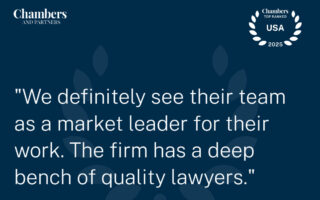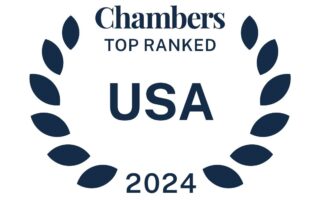Supreme Court of Texas Clarifies “Fully Adversarial Trial” Requirement for Liability Insurance
By • Jun 16, 2017
On June 16, 2017 the Texas Supreme Court delivered its opinion in Great American Insurance Company v. Hamel,Case No. 14-1007, clarifying its pronouncement in State Farm Fire & Cas. Co. v. Gandy, 925 S.W.2d 696, 714 (Tex. 1996) that a judgment rendered against an insured that is not the result of a "fully adversarial trial" is not enforceable against an insurer. In the underlying lawsuit, Hamel, the plaintiff, sued Great American's insured, Terry Mitchell Builders, Inc. The insured requested a defense from Great American, but Great American declined to defend it, citing a policy exclusion. Great American later conceded that its position was wrong, but as a result of the denial, the insured was forced to defend itself in the underlying lawsuit.
A week before trial, the Plaintiff and the insured entered into an agreement that, in the event the Plaintiff obtained a judgment against the insured, they would not attempt to seek to recover against the insured, individually and agreed to enforce any judgment against the insured's assets, except any "personal tools of the trade and truck," the insured's only assets. The day before trial, the insured signed stipulations of fact in which it admitted to a duty and breach of that duty.
At the bench trial, the insured testified consistently with the stipulations. The Plaintiff presented testimony from experts, and the insured presented no witnesses. In place of closing arguments, the trial court accepted the Plaintiff's suggestion that the parties submit proposed findings of fact and conclusions of law. The insured submitted nothing. The trial court rendered judgment for the Plaintiff and adopted their proposed findings of fact, awarding damages totaling over $360,000. The insured then assigned most of his rights against Great American to the Plaintiff, and the Plaintiff sued Great American.
The coverage litigation was tried to the bench, and the entire record from the underlying lawsuit was introduced into evidence, as were Mitchell's stipulations, the Rule 11, and the contract between the builder and the Plaintiff. The trial court rendered judgment for the Plaintiff and entered findings of fact and conclusions of law, including findings that the evidence and testimony admitted in the underlying lawsuit were truthful, that the underlying lawsuit was a genuine contest of issues resulting in an adversarial proceeding, and that the underlying judgment was supported by the evidence and binding on Great American. The trial court awarded the Plaintiff judgment in the amount of $355,838. Great American appealed. Although Great American argued the underlying judgment was not binding without a "fully adversarial trial," the Court of Appeals affirmed the trial court's judgment, holding that Great American breached its duty to defend its insured, the underlying judgment was the result of a fully adversarial trial, and the Plaintiff's assignment of its claims against Great American was valid.
The Texas Supreme Court acknowledged that, as a general rule, an insurer that wrongfully refuses to defend its insured is barred from collaterally attacking a judgment or settlement between the insured and the plaintiff. The Court explained that in Gandy,the court narrowed the scope of that rule and shifted the focus of the enforceability of an underlying judgment to whether the underlying judgment accurately reflected the plaintiffs' damages and the insured's covered loss.
Great American sought a ruling that the underlying judgment was unenforceable, citing the pronouncement in Gandy that, in no event is "a judgment for plaintiff against defendant, rendered without a fully adversarial trial, binding on defendant's insurer or admissible as evidence of damages in an action against defendant's insurer by plaintiff as defendant's assignee." Gandy, 925 S.W.2d at 714. The Court recognized the difficulty in retroactively evaluating or second guessing trial strategies and tactics to determine whether a trial was adversarial because every trial presents unique challenges requiring subjective judgment that may seem in hindsight to have been ill-advised.
The Court clarified that the controlling factor in determining whether a fully adversarial trial has occurred is whether, at the time of the underlying trial or settlement, the insured bore an actual risk of liability for the damages awarded or agreed upon, or had some other meaningful incentive to ensure that the judgment or settlement accurately reflected the plaintiff's damages. In other words, "proceedings lose their adversarial nature when, by agreement, one party has no stake in the outcome and thus no meaningful incentive to defend itself." The court opined that the parties' pre-trial agreement eliminated any meaningful incentive that the insured had to contest the judgment and, thus, the underlying trial was a mere formality that resulted in obtaining a potentially inflated judgment that would be enforced against Great American. Accordingly, the Court held that the underlying judgment was not binding against Great American in the coverage litigation and could not be relied upon as evidence in the coverage litigation.
The Court further held that written, pre-trial agreements that eliminate an insured's financial risk will not always be either necessary or sufficient to disprove adversity, but the presence of an agreement creates a strong presumption that the judgment did not result from an adversarial trial. Conversely, the absence of such an agreement creates a strong presumption that the judgment resulted from an adversarial trial. An insurer can overcome the presumption by demonstrating that, though the plaintiff and the insured did not enter into an agreement, the evidence nonetheless established that the insured had no meaningful stake in the outcome of the underlying litigation.
Although the judgment was not binding, the court found that Great American's refusal to defend or to litigate its duty to defend while the underlying suit was pending carried a significant risk and placed the burden on the insured to defend itself. The court concluded that, under the facts of this case, in which the denial is wrongful, the parties could properly re-litigate the underlying liability issues in a coverage action. And, because the defense was wrongfully denied, the Court declined to render judgment in Great American's favor and remanded the case in the interest of justice. Because the underlying liability and damages issues were not fully litigated in the coverage lawsuit, the Court remanded the matter for re-litigation.







